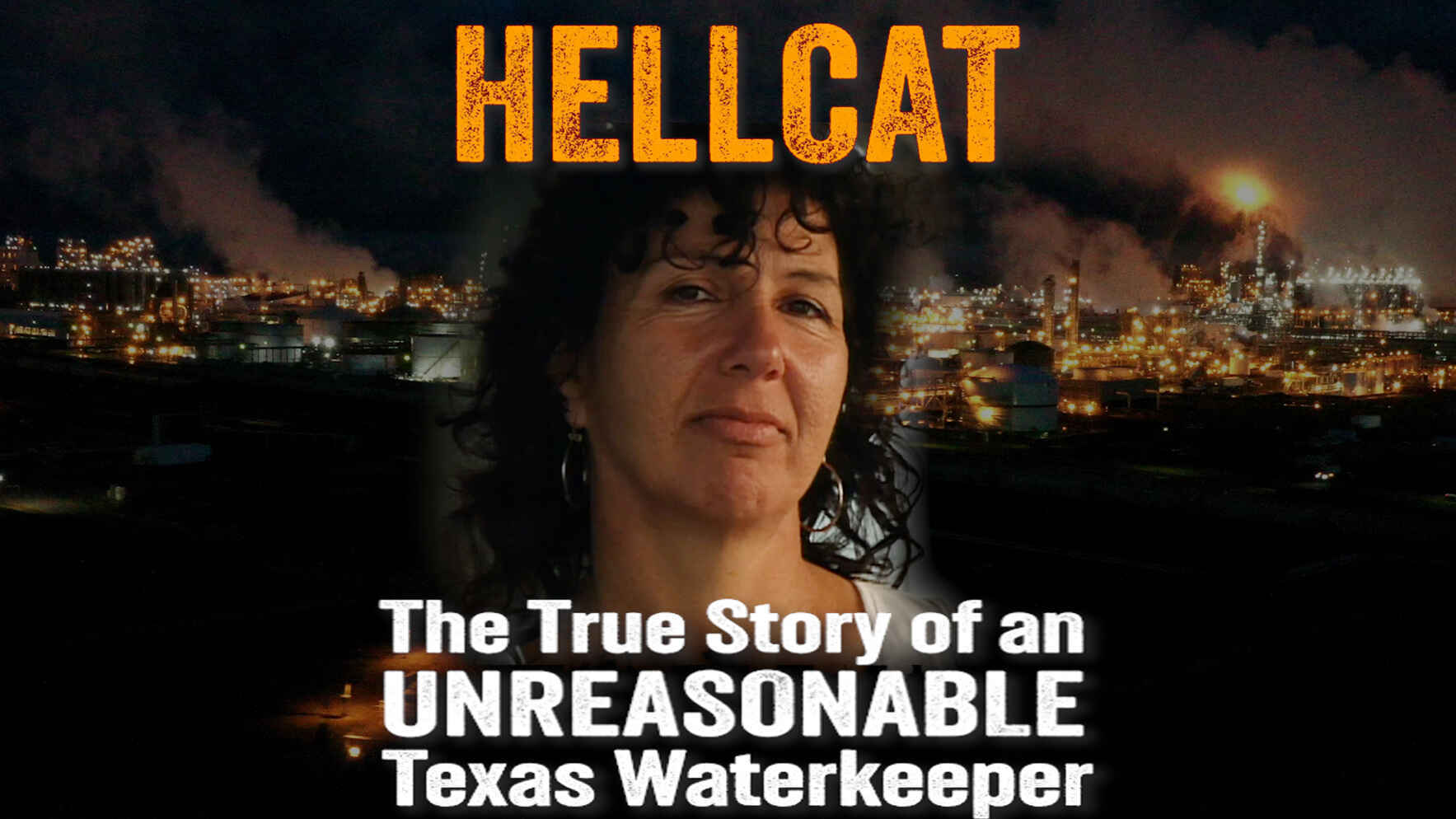Hellcat
A film by Fax Bahr

A portrait in courage, Hellcat chronicles shrimp boat captain Diane Wilson’s 35-year-long David Vs. Goliath war against the petrochemical giants that have polluted, and nearly destroyed, the Texas Gulf Coast bays her family has fished for a century.
Interweaving verite footage of Diane’s rise to activism with archival news coverage, home movies, interviews and industrial promotional films from the industries that ring Diane’s town, the film intimately chronicles her harrowing journey.
We witness Diane as she calls community meetings, speaks truth to power, stages street protests and hunger strikes, and gathers evidence from a network of whistleblowers. As a result, she is shunned by friends and family, loses her marriage, and suffers intense retaliation. Her dog is shot. Helicopters circle her house. She nearly drowns when her boat is sabotaged.
Undaunted, Wilson fights on and wins the largest Clean Water Act lawsuit in history against Formosa Plastics, a Taiwan based multinational petrochemical company.
But her war is far from over.
After the landmark settlement, Diane discovers that an oil pipeline company plans to build a new oil export terminal in Matagorda Bay. For the largest tanker ships to gain access to the port, plans are filed with the Army Corps of Engineers to dredge new deepwater shipping channels in the bay, directly through an EPA declared Superfund site, where millions of pounds of mercury discharged from an Alcoa plant line the bay bottom.
Diane - 74 - launches a hunger strike in opposition. After 38 days of fasting, locking herself to the gates to the Army Corps headquarters in Galveston, and 48 hours in the the County Jail, Diane wins a lawsuit forcing a new environmental impact statement.
She then wins the Goldman Environmental Prize for her environmentalism, and states in her speech, to a standing ovation: “We are all too reasonable! We must be unreasonable for Mother Earth!
And still, the war continues. In early 2025, Diane discovers that Exxon has filed for permits to build the largest plastic pellet manufacturing facility on the planet, directly between the Formosa and Alcoa plants on Matagorda Bay. “I’ll be fighting until my last breath”, she says, as she climbs into her truck and drives into battle…
Through the lens of her epic saga, Hellcat offers a boots-on-the-ground view of a fight for humankind’s most precious resource – clean water. But the film aims to paint on a broader canvas - in telling the specifics of Diane’s story, we point to a larger environmental justice story playing out in low income, fence line communities across the planet. The story of our how industrial polluters skirt regulation, bully communities, and continue to squander our dwindling water supply.
Hellcat shows how we got here, and how to move forward…